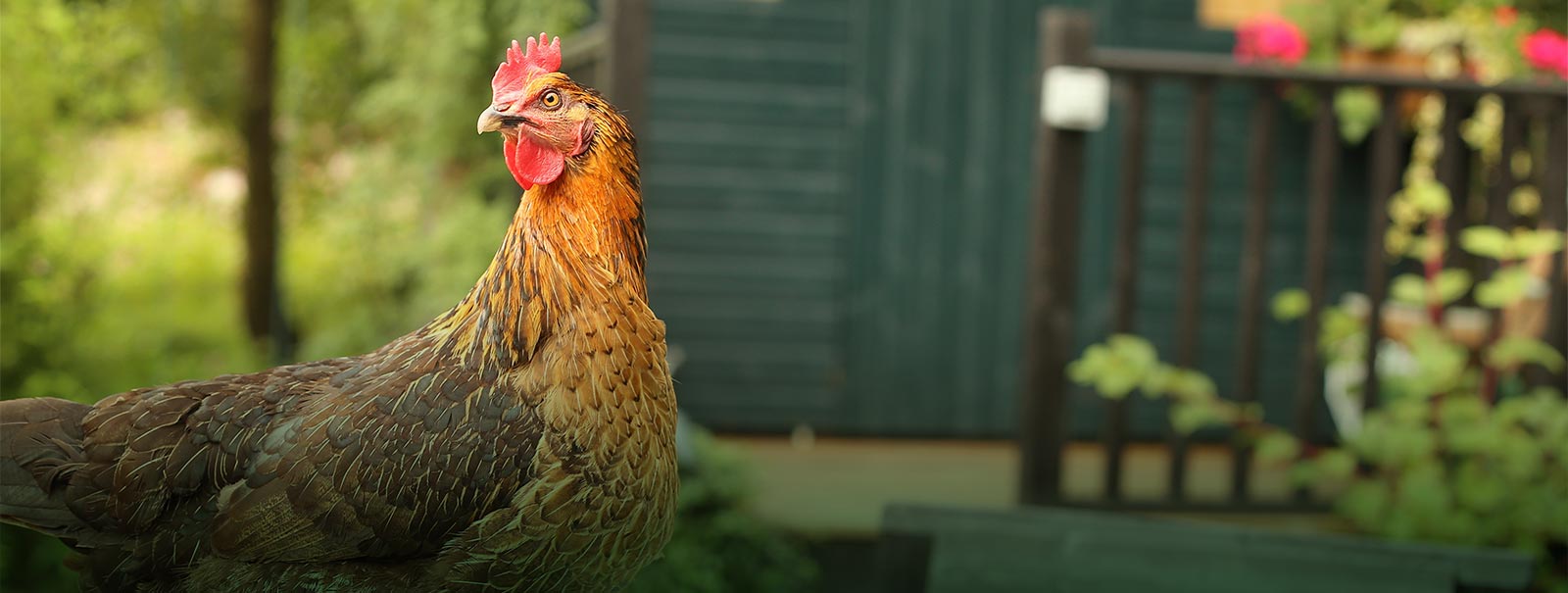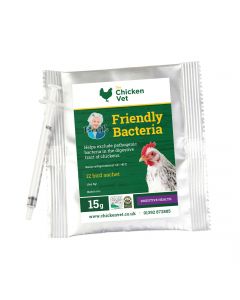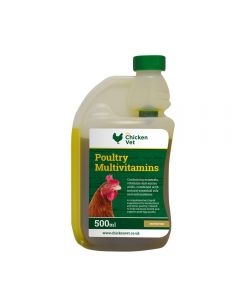
The advice hub Respiratory Disease
Signs
Respiratory disease often presents itself with one or more birds making a rattling sound or sneezing and shaking their heads excessively. These birds can have discharge from the holes in the beak and foamy or running eyes. In severe cases these birds can have swollen sinuses (presents as swelling around the eyes), stop eating and in extreme cases die.
If your bird does develop any of these signs it is worth consulting your vet as antibiotic treatment is usually advised. In general your vet will often advise that the entire group of birds should be treated. Usually medication is given in their water but in severely ill birds, injections may be the best option.
Birds suffering with respiratory disease should always be isolated from the other healthy hens, given lots of TLC and be given veterinary attention where necessary.
Cause
There are a number of predisposing factors for respiratory disease in chickens: as with any animal, stress can cause an underlying disease to show itself. This stress could be extreme temperatures and humidity, high stocking density, being transported, being taken to a poultry show and new animals being introduced to an existing/established flock.
There are a number of possible pathogens involved in respiratory disease in chickens. A simple blood test can determine which one(s) are the cause. It is often the case that more than one pathogen is involved, the most common ones are Mycoplasma gallisepticum (MG), Infectious Bronchitis (IB), Avian Rhino Tracheitis virus (ART) and Infectious Laryngotracheitis virus(ILT).
Mycoplasma gallisepticum is a type of bacteria which can cause respiratory disease in chickens and other poultry. Clinical signs are swollen sinuses, sneezing and foamy watery eyes. In certain cases, it can cause swollen joints and subsequently lameness. It can infect the oviduct thus altering egg shell colour and quality and therefore it can be transferred via the egg to chicks.
Once infected a chicken is infected for life although clinical signs will regress with time and treatment but they are always liable to come back particularly at time of stress.
ART is a pneumovirus which causes swollen heads, swollen sinuses, sneezing and in severe cases nervous signs.
IB is a coronavirus which causes sneezing, foamy eyes and swollen sinuses usually in young birds. However like Mycoplasma it can infect the oviduct altering egg shell colour and quality but unlike Mycoplasma it does not infect chicks via the egg. Severe IB infection in young female birds can permanently damage the oviduct causing it to permanently not carry the egg from the ovary to the vent so the eggs are laid internally. These eggs inside the bird are slowly absorbed but they provide an excellent medium for bacteria, so internal layers are vulnerable to get egg peritonitis. The absorption rate is slower than the speed that she continues to lay eggs internally, this can result in a build-up of eggs in the chicken's abdomen, causing her to adopt a penguin like stance.
ILT is a herpes virus and causes similar respiratory signs. ILT often leads to a plug of blood and mucus which can block the chicken's trachea (wind pipe) leading to the bird choking to death. This virus, like Mycoplasma, never goes away and can come back during times of stress. Like other herpes viruses, it is for life.
Furthermore chickens have a unique respiratory system compared to mammals. They have air sacs which are very thin and when viruses such as IB damage the protective cells of the trachea (windpipe) the birds can easily breathe in bacteria which can cross the air sacs into the abdomen to cause peritonitis.
Prevention
The best way of preventing infection of your birds is to minimise stress, ensure the stocking density and ventilation are correct and that you buy in disease free birds from a reputable supplier which have been quarantined for at least three weeks (try not to buy from local markets).
If you breed your own birds and you have any ongoing disease issues you can consider vaccination of your flock.
Treatment
In the main poultry respiratory disease are mostly viral, which will not respond to antibiotics. These viruses often damage the respiratory system allowing secondary bacteria such as E.coli and Pasteurella to cause an infection. In severe cases blood poisoning, referred to as septicaemia. Bacterial infections may need antibiotic treatment and for this you need to contact your local vet.
If your birds are under stress, caused by bad weather, at time of moult, broody, or are new to their environment, giving them Poultry Multivitamins or Beryl's Friendly Bacteria to support them through this stress will lower the risk of pathogens taking hold when they are vulnerable by boosting them.



